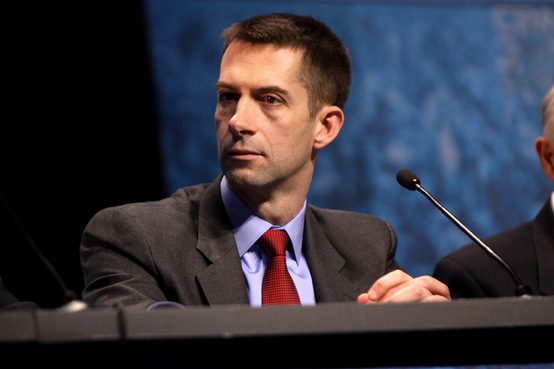Cotton and the Iran Hawks’ Loathing of Diplomacy

Incoming Republican Senator Tom Cotton is refreshingly candid about his hostility to diplomacy with Iran:
I hope that Congress’ role will be to put an end to these negotiations.
Specifically, he wants Congress to violate the terms of the interim agreement so that the U.S. will be the party responsible for the breakdown in talks. Despite the fact that Iran has so far complied with the terms of the interim agreement, Cotton wants the U.S. to ignore its commitments. It’s worth noting here that hawks are never concerned about lost “credibility” when it comes to violating international agreements. Ending the negotiations would free Iran from the constraints of the Joint Plan of Action (JPOA), which has so far succeeded in making it more difficult for Iran to build a nuclear weapon in the future than if there had been no interim agreement.
Cotton claims that Iran is “getting everything it wants,” but that is far from true. When the extension of talks was announced last month, Paul Pillar explained why the U.S. benefited the most:
Our side—the United States and its partners in the P5+1—got by far the better side of the deal in the JPOA. We got the fundamental bomb-preventing restrictions (including most significantly a complete elimination of medium-level uranium enrichment) and enhanced inspections we sought, in return for only minor sanctions relief to Iran that leaves all the major banking and oil sanctions in place. If negotiations were to go on forever under these terms, we would have no cause to complain to the Iranians.
Cotton is a typical Iran hawk in that he is intensely opposed to the diplomatic effort that has already made a nuclear-armed Iran less likely. His objection to the negotiations doesn’t seem to be based on the details of the current agreement, but stems instead from a reflexive rejection of diplomatic engagement with unsavory regimes. Like most hard-liners, Cotton simply asserts that the other side is getting the best of the deal because this is what hard-liners normally assume about any negotiation. The greatest danger for a hard-liner on Iran is the possibility that a final agreement could be reached that satisfies all parties and shows that successful diplomacy with Iran is possible, so it is understandable that hard-liners are prepared to do what they can to sabotage negotiations.
Comments